
Sicily is an island in the central Mediterranean Sea, south of the Italian Peninsula in continental Europe and is one of the 20 regions of Italy. With 4.8 million inhabitants, including 1.3 million in and around the capital city of Palermo, it is the most populous island in the Mediterranean Sea. It is named after the Sicels, who inhabited the eastern part of the island during the Iron Age. Sicily has a rich and unique culture in arts, music, literature, cuisine, and architecture. Its most prominent landmark is Mount Etna, the tallest active volcano in Europe, and one of the most active in the world, currently 3,357 m (11,014 ft) high. The island has a typical Mediterranean climate. It is separated from Calabria by the Strait of Messina. It is one of the five Italian autonomous regions and is generally considered part of Southern Italy.

Roberto Gastone Zeffiro Rossellini was an Italian film director, screenwriter and producer. He was one of the most prominent directors of the Italian neorealist cinema, contributing to the movement with films such as Rome, Open City (1945), Paisan (1946), and Germany, Year Zero (1948). He is also known for his films starring Ingrid Bergman, Stromboli (1950), Europe '51 (1952), Journey to Italy (1954), Fear (1954) and Joan of Arc at the Stake (1954).
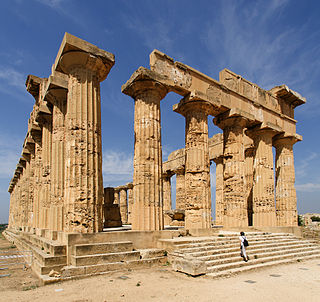
Selinunte was a rich and extensive ancient Greek city of Magna Graecia on the south-western coast of Sicily in Italy. It was situated between the valleys of the Cottone and Modione rivers. It now lies in the comune of Castelvetrano, between the frazioni of Triscina di Selinunte in the west and Marinella di Selinunte in the east.

Reggio di Calabria, commonly and officially referred to as Reggio Calabria, or simply Reggio by its inhabitants, is the largest city in Calabria as well as the seat of the Regional Council of Calabria. It has an estimated population between 150,000 and 200,000 and is the twenty-first most populous city in Italy, after Modena and other Italian cities, and the 100th most populated city in Europe. Reggio Calabria is located near the center of the Mediterranean and is known for its climate, ethnic and cultural diversity. It is the third economic centre of mainland Southern Italy. About 560,000 people live in the metropolitan area, recognised in 2015 by Italy as a metropolitan city. Sadly, it holds the record of the worst city in terms of quality of life for environmental and cultural parameters, ranking among the worst Italian cities for quality of life.

In archaeological excavation, a feature is a collection of one or more contexts representing some human non-portable activity, such as a hearth or wall. Features serve as an indication that the area in which they are found has been interfered with in the past, usually by humans.
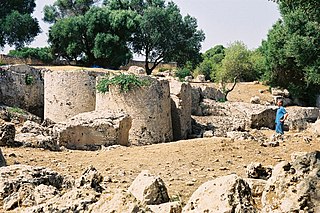
Campobello di Mazara is a town in the province of Trapani, Sicily, southern Italy.

The Sassi di Matera are two districts of the Italian city of Matera, Basilicata, well-known for their ancient cave dwellings inhabited since the Paleolithic period.

Roberto Vecchioni is an Italian singer, songwriter, and lyricist.
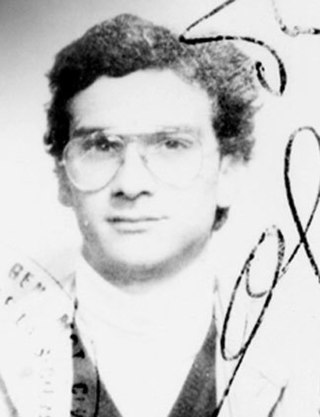
Matteo Messina Denaro, also known as Diabolik, was a Sicilian Mafia boss from Castelvetrano. He was considered to be one of the new leaders of the Sicilian mob after the arrests of Bernardo Provenzano on 11 April 2006 and Salvatore Lo Piccolo in November 2007. The son of a Mafia boss, Denaro became known nationally on 12 April 2001 when the magazine L'Espresso put him on the cover with the headline: Ecco il nuovo capo della Mafia.

Nelo Risi was an Italian poet, film director, translator and screenwriter, nephew of cinematographer Fernando Risi and younger brother of director Dino Risi.
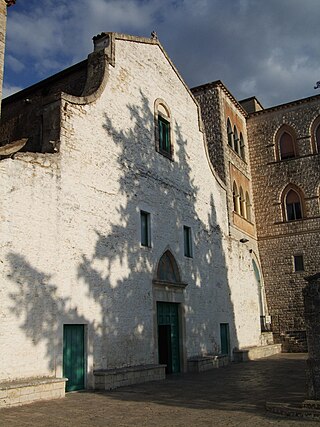
Cassano delle Murge is a town and comune in the Metropolitan City of Bari, Apulia, southern Italy.

Taormina Film Fest (TFF) is an annual Italian film festival that takes place at Taormina, Sicily, Italy in July. It was established in 1955 in Messina, and in 1957 became Rassegna Cinematografica Internazionale di Messina e Taormina, until it moved permanently to Taormina in 1971. It had a succession of names before adopting its current name.
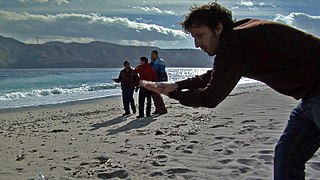
Domenico Distilo is a filmmaker living and working between Rome, Italy and Berlin, Germany.

The Antonino Salinas Regional Archeological Museum is a museum in Palermo, Italy. It possesses one of the richest collections of Punic and Ancient Greek art in Italy, as well as many items related to the history of Sicily. Formerly the property of the Oratory of Saint Philip Neri, the museum is named after Antonino Salinas, a famous archaeologist and numismatist from Palermo who had served as its director from 1873 until his death in 1914, upon which he left it his major private collection. It is part of the Olivella monumental complex, which includes the Church of Sant'Ignazio all'Olivella and the adjoining Oratory.
Francesco (Francio) Mazza is an Italian writer, script-writer and director.
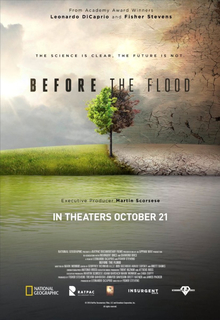
Before the Flood is a 2016 documentary film about climate change directed by Fisher Stevens. The film was produced as a collaboration between Stevens, Leonardo DiCaprio, James Packer, Brett Ratner, Trevor Davidoski, and Jennifer Davisson Killoran. Martin Scorsese is an executive producer.
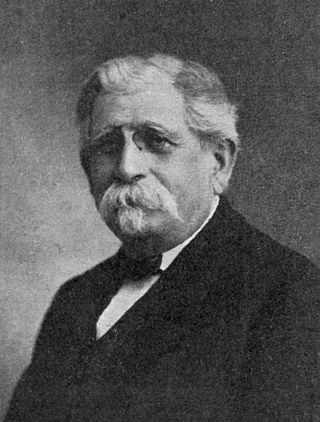
Antonino Salinas was an Italian archaeologist and numismatist.
Lino Del Fra was an Italian director and screenwriter.

Margins is a 2022 Italian comedy film directed by Niccolò Falsetti.

Lisa Camillo is an Italian-Australian filmmaker, producer and writer. She is known for writing, producing and directing Balentes – The Brave Ones, Italy's Covid Hotline and The Sardinian Factory of Death. Her publications include Una Ferita Italiana .


















